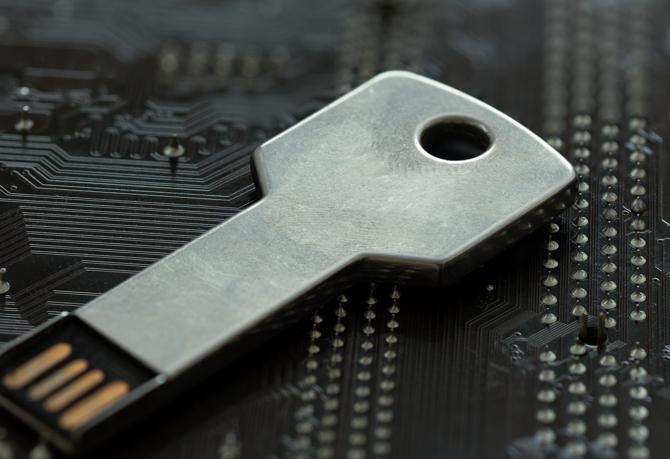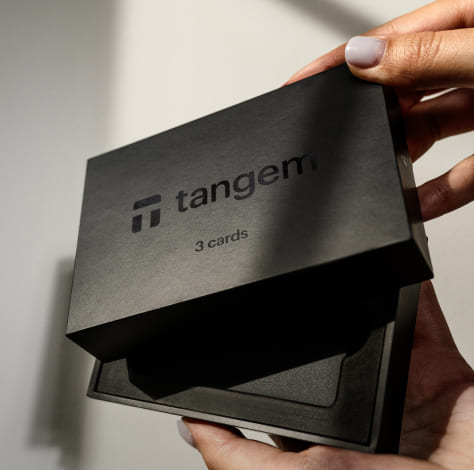Over recent years, privacy coins like Monero and Zcash have gained traction for their ability to offer enhanced transaction confidentiality. When paired with hardware wallets, these digital currencies can provide a formidable layer of security against third-party tracking and digital surveillance. However, users must navigate the risks associated with anonymity, including potential legal implications and the challenge of selecting trustworthy wallets. This blog post explores the best strategies for maximizing anonymity and safeguarding your financial privacy in the evolving cryptocurrency landscape.
Understanding Privacy Coins
The rise of digital currencies has introduced a new subset known as privacy coins, which prioritize anonymous transactions and user confidentiality. They leverage advanced cryptographic techniques to obscure transaction details, ensuring that both senders and receivers remain unidentifiable on the blockchain. Popular examples include Zcash, Monero, and Dash; each offers varying levels of privacy and anonymity features, appealing to individuals seeking greater control over their financial information.
What Are Privacy Coins?
Any digital currency that incorporates specific technological measures to enhance user anonymity and transaction confidentiality is classified as a privacy coin. Unlike traditional cryptocurrencies such as Bitcoin, where transaction details are visible on a public ledger, privacy coins obscure these details, creating a more discrete digital environment. This makes them particularly attractive to users concerned about surveillance and who desire increased financial privacy.
Key Features of Privacy Coins
Any privacy coin is characterized by several distinctive features designed to protect transaction anonymity and user identity. The following list highlights the key attributes:
- Stealth Addresses: Unique one-time addresses for each transaction.
- Ring Signatures: Mixes a user’s transaction with others to obscure its origin.
- Bulletproofs: Efficient cryptographic proofs that keep transaction amounts private.
- Confidential Transactions: Obscures the amounts being sent in a transaction.
- Decentralized Mixing: Combines transactions from multiple users to enhance anonymity.
Consequently, the technological sophistication embedded in privacy coins presents both opportunities and challenges. Users can benefit from enhanced security and reduced financial tracking, but these features can also attract malicious actors seeking to exploit the anonymity for illegal activities. The balance between legitimate use and potential abuse continues to shape the ongoing discourse around privacy-focused cryptocurrencies.
The Importance of Anonymity in Cryptocurrency
Some users of cryptocurrency value anonymity as it provides a layer of security against unwanted surveillance and unauthorized access to personal financial data. By preserving their identity, individuals can engage in transactions without the fear of being targeted for fraud or theft, making anonymity a vital element for many in the digital economy.
Moreover, anonymity supports the fundamental philosophy of cryptocurrencies which is financial freedom. It empowers users to transact without interference from governmental regulations or third-party control, promoting a more decentralized and liberated economic environment.
Risks of Anonymity
Cryptocurrency transactions that prioritize anonymity can expose users to significant risks. Cryptocurrency networks can attract illicit activities, making users vulnerable to being associated with illegal transactions. This anonymity can complicate investigations and generate doubts about legitimacy, leading to regulatory scrutiny.
Additionally, the lack of traceability in anonymous transactions can encourage fraud and scams, as malicious actors exploit this feature to deceive users. Without a clear identity, recovering stolen funds or addressing fraudulent activities becomes increasingly challenging, posing substantial threats to unsuspecting investors.
Benefits of Enhanced Privacy
Behind the veil of anonymity, users can experience numerous advantages such as enhanced security and peace of mind. Privacy coins offer users the ability to control their personal information, ensuring it remains confidential while still allowing for seamless transactions. This not only protects against identity theft but also shields financial data from hackers and data breaches.
In addition, enhanced privacy can foster greater participation in the cryptocurrency ecosystem. Users may feel more comfortable engaging with decentralized platforms, knowing their sensitive information is protected. This increased trust encourages a wider adoption of cryptocurrency and creates an environment where innovation can flourish without fear of exploitation or exposure.
Overview of Hardware Wallets
It is imperative to understand the role of hardware wallets in maintaining the privacy and security of cryptocurrencies. These devices are designed to store users’ private keys offline, making them significantly less vulnerable to hacking attempts and online threats. Unlike software wallets, which can be susceptible to malware and phishing attacks, hardware wallets offer a more secure environment for managing digital assets.
What Are Hardware Wallets?
Along with traditional wallets, hardware wallets provide a tangible way to store cryptocurrency securely. They are physical devices that generate and store private keys offline, allowing users to sign transactions without exposing their keys to the internet. Popular hardware wallets include brands like LedgerSome of the links on this page are affiliate links. If you purchase a cold wallet through these links, we may earn a commission at no extra cost to you. and TrezorSome of the links on this page are affiliate links. If you purchase a cold wallet through these links, we may earn a commission at no extra cost to you., offering various features tailored to ease of use and security.
How Hardware Wallets Enhance Security
Between the advantages of using a hardware wallet and traditional online storage options, the level of security offered stands out. Hardware wallets are immune to malware and phishing attacks that commonly target software wallets. They require physical access to the device for transaction approval, adding a layer of protection against unauthorized access.
Understanding the security mechanisms of hardware wallets helps users appreciate their resilience against various threats. Private keys remain offline, reducing exposure to hacking. Transaction signing occurs within the device, ensuring that sensitive information does not leave the wallet. Additionally, many hardware wallets offer backup and recovery options to safeguard against loss, providing peace of mind for users concerned about their digital privacy.
Integrating Privacy Coins with Hardware Wallets
Now that the demand for digital privacy has surged, integrating privacy coins with hardware wallets has become a top priority for users seeking maximum anonymity. By combining the benefits of privacy coins with the security of hardware wallets, users can store their assets safely while maintaining their desired level of anonymity. The synergy of these technologies allows individuals to safeguard their transactions, making it more challenging for third parties to trace their activities on the blockchain.
Compatibility of Privacy Coins with Hardware Wallets
By ensuring compatibility between privacy coins and hardware wallets, users can effectively leverage the strengths of both technologies. Many popular hardware wallets support a selection of privacy coins, such as Monero and Zcash, which are designed to provide enhanced anonymity features. However, not all hardware wallets are created equal; some may lack support for specific privacy coins, emphasizing the importance of thorough research before choosing a wallet. Users should always check the manufacturer’s website for a comprehensive list of supported coins to avoid any compatibility issues.
Best Practices for Use
To maximize security and anonymity when using privacy coins with hardware wallets, it is necessary to adopt best practices. This includes regularly updating wallet firmware, using secure PINs, and backing up recovery phrases in a safe location. Additionally, users should be cautious with their internet connections, opting for privacy-enhancing tools such as VPNs when accessing their wallets. Maintaining an awareness of potential phishing attacks and fraudulent schemes is also important to protect sensitive information.
Even with the strongest privacy measures in place, users must exercise caution and vigilance. Regularly reviewing and updating security settings can enhance protection against emerging threats. Being aware of potential vulnerabilities and adapting to new security practices ensures users can maintain their privacy while effectively managing their digital assets. The combination of privacy coins and hardware wallets fosters a robust approach to digital asset management, enabling users to maintain their anonymity securely.
Comparing Popular Privacy Coins
All privacy coins offer unique features and levels of anonymity, making them suitable for different user needs. The following table presents a comparison of some of the most popular privacy coins in terms of their key attributes and technologies.
| Coin | Key Features |
| Monero | Ring signatures, stealth addresses, dynamic block size |
| Zcash | Selective disclosure, zero-knowledge proofs (zk-SNARKs) |
| DASH | InstantSend, PrivateSend, masternodes |
| PIVX | Proof of Stake, anonymous transactions, community governance |
Monero
One of the leading privacy coins, Monero uses advanced cryptographic techniques to ensure user anonymity. Its ring signatures mix the digital signature of the transaction sender with those of other users, making it challenging to trace the origin of transactions. Additionally, stealth addresses are generated for each transaction, ensuring that receivers can’t be linked to their public addresses.
This robust privacy approach means that Monero transactions are inherently private by default, offering users a seamless experience without the need for optional privacy settings. The dynamic block size also allows the network to efficiently manage transaction loads, catering to increased privacy needs without sacrificing performance.
Zcash
Above all, Zcash stands out with its innovative implementation of zero-knowledge proofs, known as zk-SNARKs. This technology allows for transactions to be verified without revealing any sensitive information, granting users the ability to choose between transparent and shielded transactions. While Zcash provides users the choice of anonymity, the selective disclosure feature is instrumental for users needing to prove compliance in regulated environments.
At the same time, Zcash has faced scrutiny regarding its potential for misuse due to the optional nature of its privacy features. While its technology is strong, users must be cautious as the transparency of transactions in the public ledgerSome of the links on this page are affiliate links. If you purchase a cold wallet through these links, we may earn a commission at no extra cost to you. can still allow for some level of tracing. The ability to navigate between privacy and transparency may appeal to a diverse range of users, but it also raises concerns regarding the use of Zcash in illicit activities.
Future Trends in Privacy and Anonymity
Keep an eye on the evolving landscape of privacy coins and hardware wallets as they adapt to emerging challenges. As digital currencies gain popularity, the demand for enhanced anonymity will spur innovations in technology, regulation, and user awareness. The future will likely see a divergence between privacy-focused solutions and those that align with governmental compliance.
Regulatory Changes
An increasing number of governments are recognizing the significance of privacy coins while simultaneously expressing concern about illicit activities associated with them. Emerging regulations could reshape how privacy coins operate, leading to stricter standards for know-your-customer (KYC) and anti-money laundering (AML) compliance. The balance between maintaining user anonymity and adhering to legal requirements will be a contentious issue going forward.
Technological Innovations
Along with regulatory changes, technological advancements will play a pivotal role in the future of privacy and anonymity. Developers are constantly exploring new cryptographic techniques to enhance privacy features and address potential vulnerabilities. The adoption of privacy-enhancing technologies, such as zero-knowledge proofs and mixers, will allow users to engage in transactions with greater confidence in their anonymity.
Due to the rapid pace of technological innovation, privacy coins will increasingly integrate features that bolster security and anonymity. Innovations such as decentralized identity solutions and multi-signature wallets will empower users with more control over their data. Alongside this, advancements in hardware wallet technologies will provide security against hacks, ensuring that even the most privacy-conscious users can navigate the digital financial landscape with enhanced protection.
Conclusion
Presently, the integration of privacy coins with hardware wallets presents a robust strategy for achieving maximum anonymity in cryptocurrency transactions. These tools work in tandem to protect users’ financial activities from surveillance, ensuring that personal information remains confidential while navigating blockchain networks. By leveraging advanced cryptographic techniques, privacy coins like Monero and Zcash enable users to transact without revealing their identity, while hardware wallets provide a secure means of storing these assets offline, minimizing exposure to hacking and other vulnerabilities.
As the digital landscape evolves, the importance of privacy in financial dealings will only continue to grow. Users seeking to maintain their anonymity must remain informed about the developments in privacy technologies and storage solutions. By adopting privacy coins and utilizing hardware wallets, individuals can significantly enhance their security posture, making informed choices that align with their privacy objectives in an increasingly transparent digital world.







